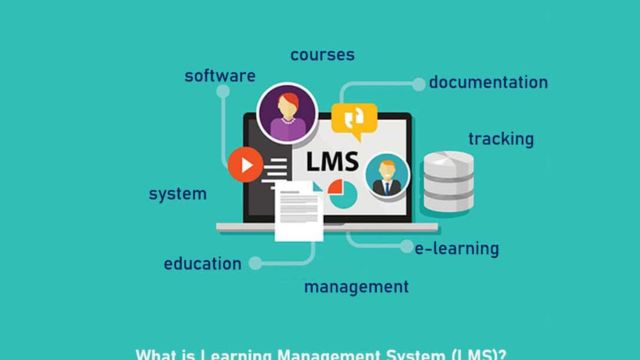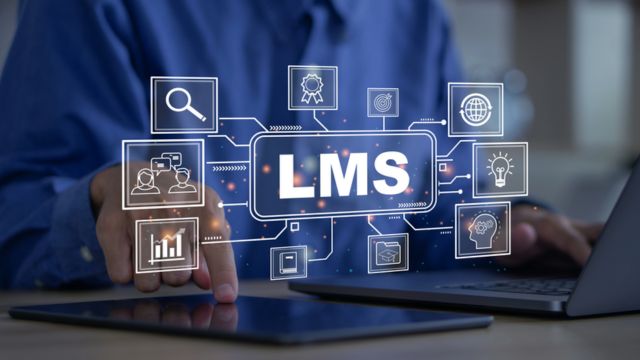In an era where digital transformation defines the pace and quality of development, a Learning Management System (LMS) has emerged as a powerful tool to build and scale knowledge across organizations. Designed to simplify the management and delivery of training and development programs, LMS platforms play a crucial role in upskilling workforces and ensuring consistent, measurable learning outcomes—especially in the domain of public governance and administration.
As part of broader e-Governance strategies, LMS platforms have been integrated into digital infrastructure initiatives to promote continuous learning, improve efficiency, and strengthen institutional capacity. From onboarding new employees to nurturing leadership potential, a robust LMS fosters a culture of knowledge-sharing and competency-based growth.
What is a Learning Management System (LMS)?

A Learning Management System is a specialized software application used to administer, track, report, and deliver educational courses and training programs. Whether deployed in a corporate, educational, or governmental environment, the LMS serves as a centralized platform for:
- Delivering e-learning content
- Managing users and roles
- Tracking learner progress and performance
- Issuing certifications
- Hosting interactive assessments and modules
LMS platforms support both synchronous (real-time) and asynchronous (self-paced) learning, enabling learners to engage with content in ways that suit their schedules and learning styles.
LMS in Governance and Capacity Building
Within governance structures, capacity building is a continuous process aimed at developing competencies that align with evolving responsibilities. A Learning Management System supports this goal by streamlining the process of:
- Identifying learning gaps based on job roles
- Delivering targeted training in line with role expectations
- Monitoring outcomes and enhancing accountability
Aligned with frameworks such as the e-Governance Competency Framework (eGCF), the LMS enables a role-based approach to professional development. This ensures that every public official or administrative staff member receives personalized training relevant to their function.
By doing so, LMS solutions directly contribute to the goals of modern governance—efficiency, transparency, responsiveness, and innovation.
Key Features of an Effective LMS
To be successful in public service training or organizational upskilling, a Learning Management System must offer a robust set of features. Key attributes include:
1. User Management
Supports bulk user registration, customized user roles, and seamless integration with HR systems or directories for auto-syncing data.
2. Course Management
Allows easy creation, categorization, and modification of courses. Training modules can be multimedia-rich, interactive, and aligned with international e-learning standards (SCORM, xAPI).
3. Tracking and Reporting
Generates detailed reports on course completion, learner progress, quiz scores, and performance analytics. These reports help administrators identify areas for improvement and measure training impact.
4. Certifications and Assessments
Offers automated quizzes, evaluations, and certification generation based on predefined benchmarks, ensuring that skill development is both measurable and verifiable.
5. Multi-language Support
Ensures inclusivity and accessibility by offering training content in various regional languages.
6. Mobile Compatibility
Provides mobile app access or responsive web design so that users can learn on the go, anytime and anywhere.
7. Gamification and Engagement Tools
Incorporates features like badges, leaderboards, discussion forums, and social learning to boost motivation and participation.
LMS as a Tool for Digital Transformation
Digital transformation is not just about automation—it’s about changing the way people think, work, and deliver services. An LMS acts as a critical enabler in this journey by:
- Promoting a learning-first mindset in public and private organizations
- Bridging the knowledge gap across geographically dispersed teams
- Driving consistency in policy understanding, governance standards, and ethical conduct
- Enhancing digital literacy at all organizational levels
By making training accessible, standardized, and scalable, LMS platforms help create a competent, agile, and forward-thinking workforce.
Benefits of Implementing an LMS for Public and Institutional Learning
- Cost Efficiency: Reduces the cost of physical training, travel, materials, and trainer engagement
- Scalability: Supports training of large workforces simultaneously
- Flexibility: Learners can access content based on convenience, improving retention
- Accountability: Training history and performance data are logged and easily retrievable
- Consistency: Ensures that all learners receive the same quality of training, regardless of location or time
Real-World Application: LMS in Action
Public institutions, civil bodies, and administrative departments across regions are using LMS platforms to support training in areas such as:
- Project Management
- Cybersecurity Awareness
- Public Financial Management
- Data Analytics & Visualization
- Ethics in Public Service
- Emerging Technologies (AI, Blockchain, Cloud Computing)
By mapping each course to functional competencies, LMS platforms ensure that learning translates into performance.
The Road Ahead: Future of LMS in Governance
The journey of LMS is one of continuous evolution. With advancements in artificial intelligence, adaptive learning, and data analytics, the next generation of LMS platforms will:
- Recommend personalized learning paths using AI algorithms
- Integrate with global learning ecosystems for cross-border collaboration
- Enable immersive learning using AR/VR technologies
- Use predictive analytics to forecast training needs and skill gaps
The focus will shift from merely completing training to demonstrating capability through dynamic, real-time skill validation.
Conclusion
A Learning Management System is not just a platform—it’s a catalyst for knowledge-driven transformation. As part of digital infrastructure development, it empowers organizations to continuously upgrade skills, maintain governance excellence, and remain adaptable in an ever-changing world.
Whether you’re building public service capacity or preparing a future-ready workforce, an LMS is an investment in human capital and institutional strength. Embrace the future of learning—seamless, smart, and scalable.
Unlock the power of digital transformation with Digital India MIB. Stay informed about cutting-edge initiatives, explore key government schemes, and enhance your digital capabilities. Join us in shaping a digitally empowered society through knowledge, innovation, and sustainable growth. Visit now and be a part of the future!













